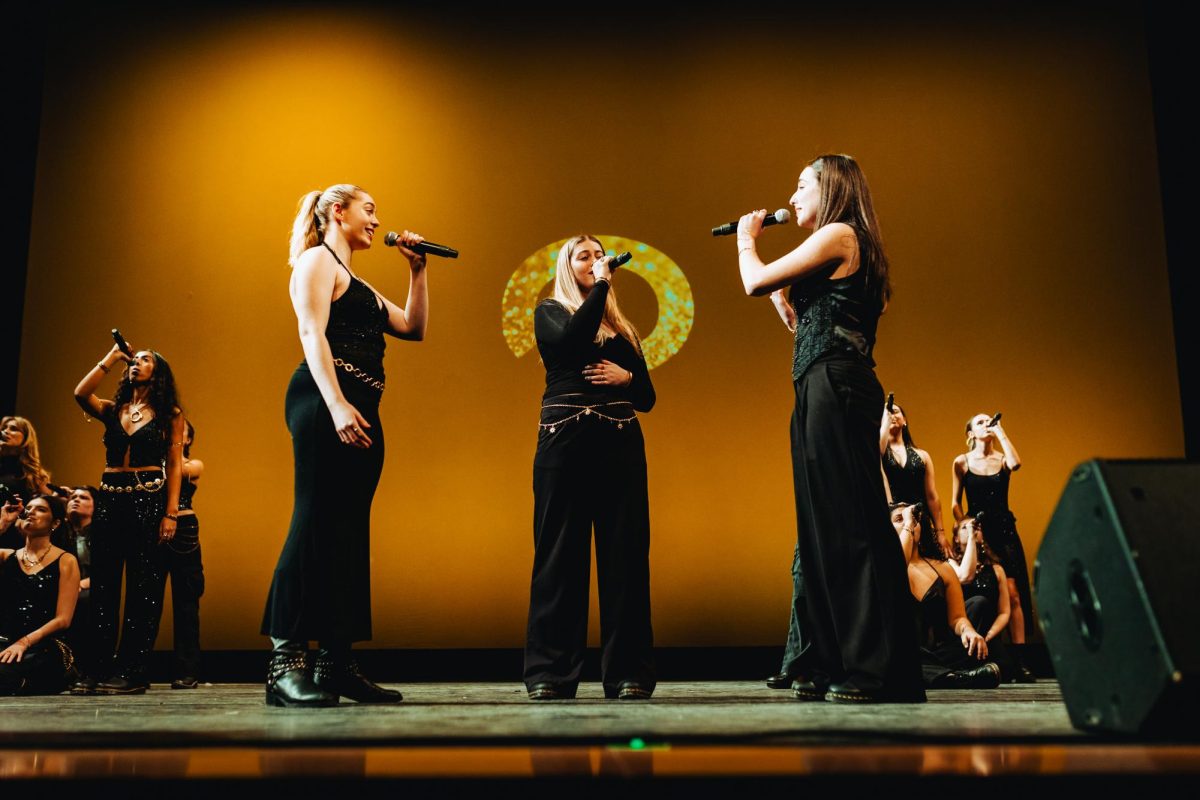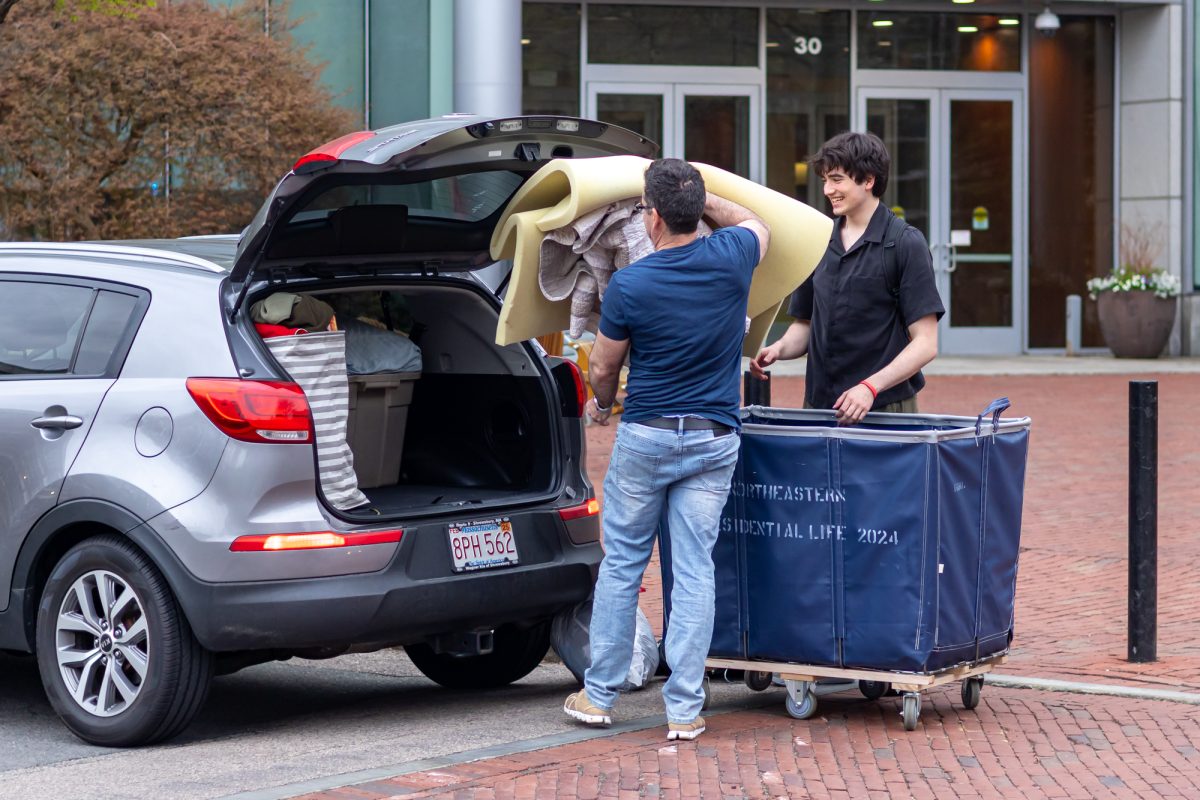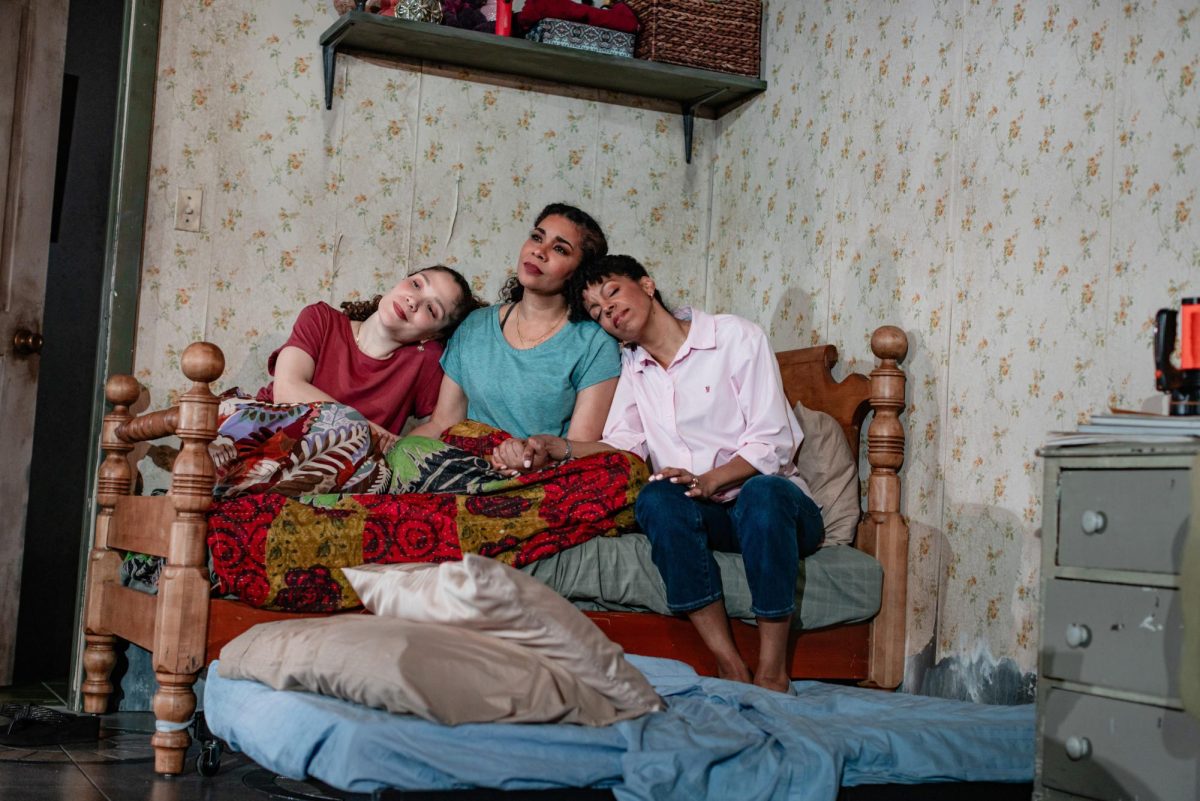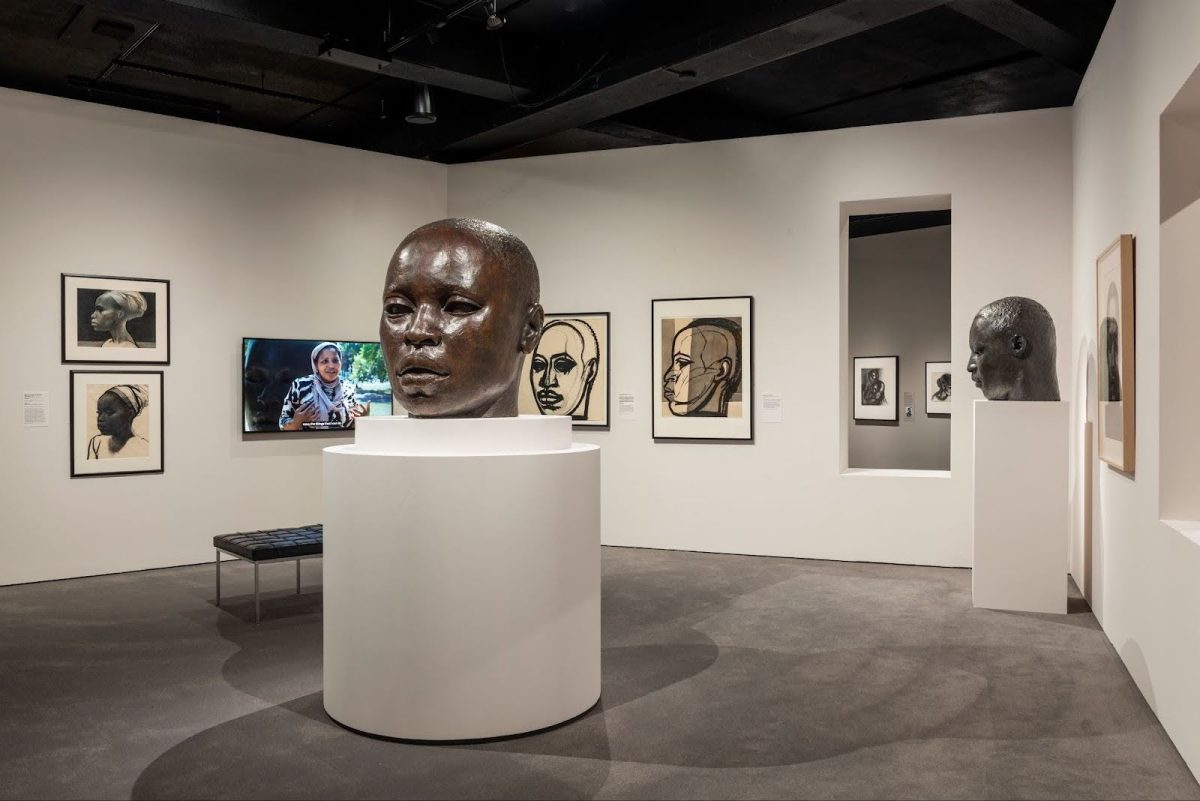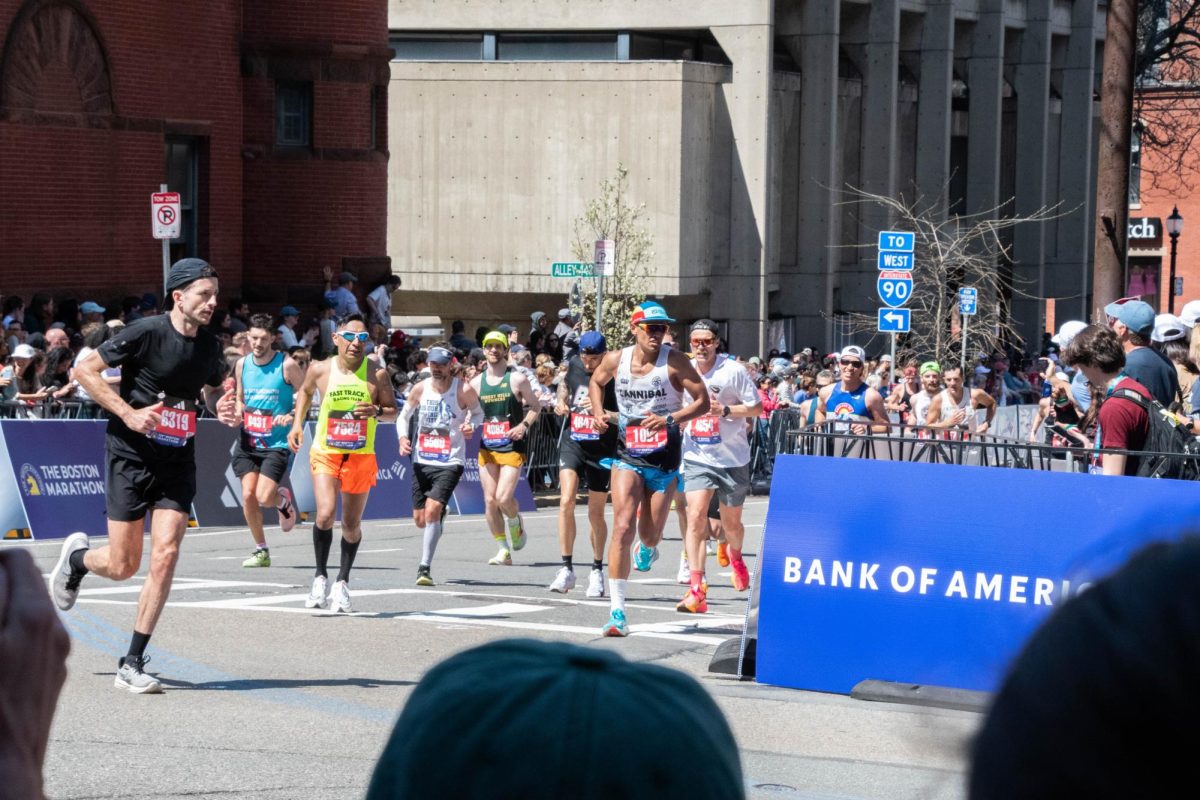By Gail Waterhouse, News Staff
A cappella at Northeastern has become more popular in the last few years, with an increase in student talent and regional recognition, sparking a friendly rivalry among the multiple groups on campus.
Five groups comprise Northeastern’s a cappella scene: The Nor’Easters, The Downbeats and Distilled Harmony, all co-ed groups; Treble on Huntington, an all-female group; and The UniSons, an all-male group. Each group has its own distinctive flair, and each was out advertising itself this week by chalking the campus and participating in the activity fair.
“We were promoting through signs and flyers around campus, and at the activities fair,” said Carl Benes, a middler electrical engineering major and treasurer for the Downbeats, a competitive group that focuses on mostly contemporary music.
As with many club promotions on campus, most of the a cappella groups’ advertising is geared toward freshmen. Each year, one a cappella group gets an edge on the competition by performing a single song at convocation.
For the past several years, that honor has gone to the Downbeats. Last spring, however, the Nor’Easters, who have been improving over the past two years in their regional competitions, petitioned for auditions to be held to determine who would have the honor.
“The Nor’Easters kind of spearheaded a small movement in the inquiry of opening [the position] up to other groups, to audition for the spot,” said Shams Ahmed, a middler international business major and the Nor’Easters’ musical director.
After auditioning in front of the music department’s associate academic specialist Allen Feinstein, the Nor’Easters were given the honor of performing at this year’s convocation. They were joined by a cappella group Distilled Harmony, who sang the Alma Mater.
“A lot of this is attributed to the success we had last year,” Ahmed said, citing the group’s placement in the semi-finals at the International Championship of Collegiate A Cappella (ICCA).
The group also won outstanding arrangement and outstanding choreography at last year’s ICCA competition, Ahmed said.
Benes said that while he wished the Downbeats would have gotten the opportunity to sing at this year’s convocation, he was impressed with the Nor’Easters performance.
“The Nor’Easters have severely increased in talent over the last two years,” he said. “I’m thoroughly impressed with what Shams has done.”
Auditions to join the Nor’Easters this year have been the most competitive yet, said Ahmed, who credits the performance at convocation partially with increasing the number of students who came out to audition.
“We normally only hold one day of auditions for about 60 people, but this year we had to hold two days,” Ahmed said. “We had 16 hours of auditions and four hours of callbacks. We had about 140 people sign up, and the numbers of who actually showed up was around 117 to 125.”
Those 125 people competed for four to five spots, Ahmed said.
Although the Nor’Easters had the advantage of performing at convocation, other a cappella groups had strong turnouts for their auditions as well.
Stephanie Sandberg, a sophomore international affairs major, said she tried out for Distilled Harmony on one of the two days they held auditions over the weekend.
“There were about 60 people there and they were only looking for eight to 10,” she said. “I’m an alto and they wanted three [altos].”
Benes said the Downbeats accepted five out of the approximately 65 students who came to audition, though they are still looking to fill one position for a bass voice.
Benes said that while the a cappella groups vie for the best talent on campus, in the end they just want the singers whose personality and vocals fit best with the group.
“We hope they audition for us and choose to sing with us, but it’s not a battle,” he said.
<em><strong>This article has been modified to reflect the following correction: The News did not originally report that Distilled Harmony sang the Alma Mater at this year’s convocation due to incorrect information provided to The News. </strong></em>


